Who is Mr. Novynskyi for the Ukrainian State and Church?
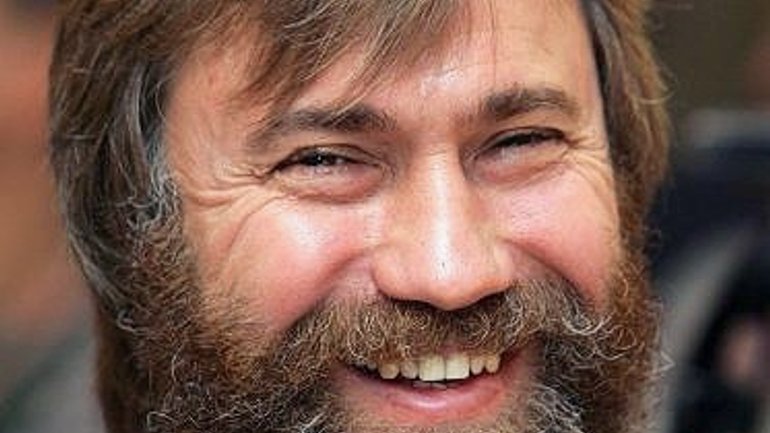
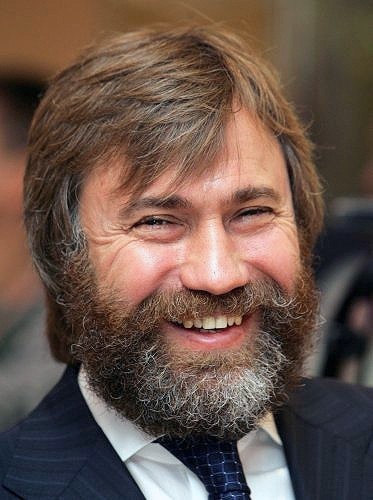 The second half of the last week proved to be politically hot. The majority of the country’s population fastened their gaze on the Parliament’s session, which considered ‘Novynskyi’s case’. Interestingly enough, this concerns MPs and representatives of the Ukrainian Orthodox Church, which he actively supports.
The second half of the last week proved to be politically hot. The majority of the country’s population fastened their gaze on the Parliament’s session, which considered ‘Novynskyi’s case’. Interestingly enough, this concerns MPs and representatives of the Ukrainian Orthodox Church, which he actively supports.
To bring to Novynskiy to trial, the appropriate decision should be supported by the Committee on Rules, and then adopted by the Parliament as Novynskyi is protected by parliamentary immunity. Initially, the Committee considered the prosecutor’s submission, but did not adopt a decision, requesting additional information on the case. Having received from the Prosecutor General all the relevant data, the Committee on Rules did not support the submission, referring it and at the same time shifting the entire political responsibility for the matter to the Chairman of the Verkhovna Rada. The Verkhovna Rada of Ukraine supported the submission and stripped Novynskyi of parliamentary immunity.
So, who is MP Novynskyi, how is he linked with the church and why does he appear in the criminal case on illegal retention of the Secretary of the deceased Head of Church?
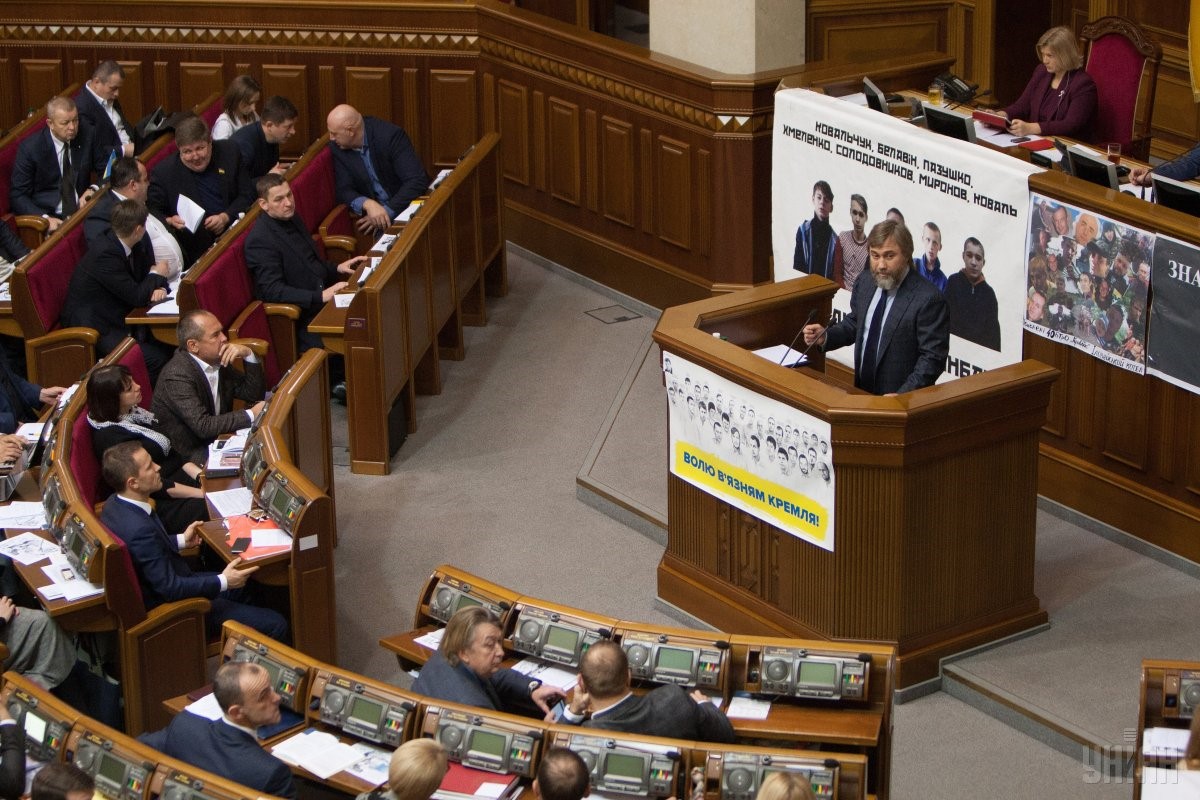
Vadym Novynskyi was born in Russia where he embarked upon his career. For some time, he was engaged in science, further he switched to business. His partner is Andriy Klyamko, who is associated with Putin via the Sambo Federation in St. Petersburg, where Klyamko is president. From 1996 to 1998, he worked in the department of Lukoil in St. Petersburg, and in 1998 he set sights on Ukraine. Funded by Russian oligarch Alisher Usmanov, Novynskyi set out to privatize Ukrainian state enterprises. Former Russian Ambassador to Ukraine Victor Chernomyrdin provided support to the transactions, which were not always transparent. It was he who introduced Novinsky with then President Kuchma, who turned a “blind eye” to some affairs of the Russian businessmen.
In 1999, Novynskyi founded ‘Smart Group’ company, which further developed into a holding. Consequently, numerous privatizations were launched. Currently, businessman owns a wide range of companies, ranging from steel mills and shipbuilding plants and ending with a popular food company “Veres.” For more detail regarding Novynskyi’s assets visit the holding’s website.
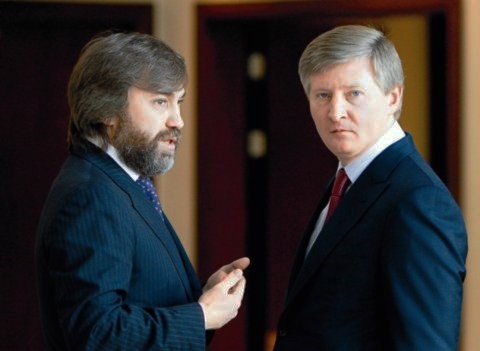
Gradually, Novynskyi accumulated sizable assets, but in the circumstances of the de facto non-functioning legal system he had to seek protection mechanisms for his business. And he found it. In 2007, he became partner for Rinat Akhmetov, by exchanging part his steel stocks to a share (25%) in Metinvest. The partnership has been mutually beneficial since Novinsky got access to Russian market and Russian capital via Akhmetov, and the latter was member of Ukrainian political community.
Thus, during Yanukovych’s tenure, Novinsky first gets Ukrainian citizenship in 2012, and in a year he was elected to Parliament at by-election. In presenting his election promises, the candidate particularly focused on granting the Russian language the status of the second state language, closer cooperation of Ukraine with Russia, and not the EU, and strong support of the UOC. This a so-called “gentleman’s set” for a pro-Russian politician in Ukraine. Nearly at the same time Novinsky undertakes “responsibility for the Church.”
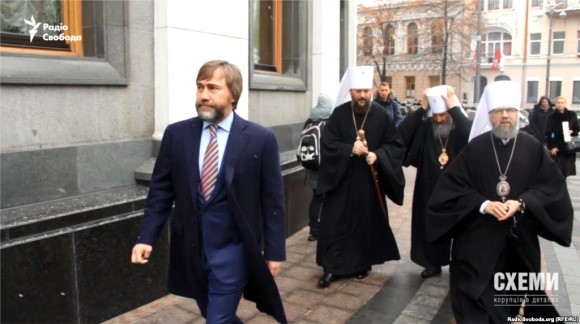
Generally speaking, the concept of “enforcer” for the Church is rather peculiar and cannot be properly understood beyond the Ukrainian context. In fact, neither the government nor the media enjoy a similar level of trust among the population as the religious organizations do. This is evidenced by numerous polls of the past 20 years. In the mid 90’s, following the Soviet Union’s collapse, a unique interdenominational situation has developed in Ukraine. Some American sociologists directly called Ukraine “the most pluralistic religious market in Europe.” Here the four major Christian denominations operate, none of them being considered an absolute leader. In addition, each of these churches have their own political and geopolitical preferences. Politicians often attempted to use this resource, and, it should be noted, not without success. They fulfilled the clergymen’s requests, and the latter campaigned for the “right” candidate. These are things that are well-known in Ukraine, which have been studied and analyzed by the experts. Viktor Yanukovych, for whom the UOC actively campaigned in 2004, was also accustomed to this ‘ordinary’ practice. He sought to use the authority of the church at the election of 2015. To do this, he had to appoint a loyal person as the church leader, since following the participation in the election campaign for Yanukovych, Metropolitan Volodymyr got disappointed in the latter and banned his clergymen holding any political campaigns.
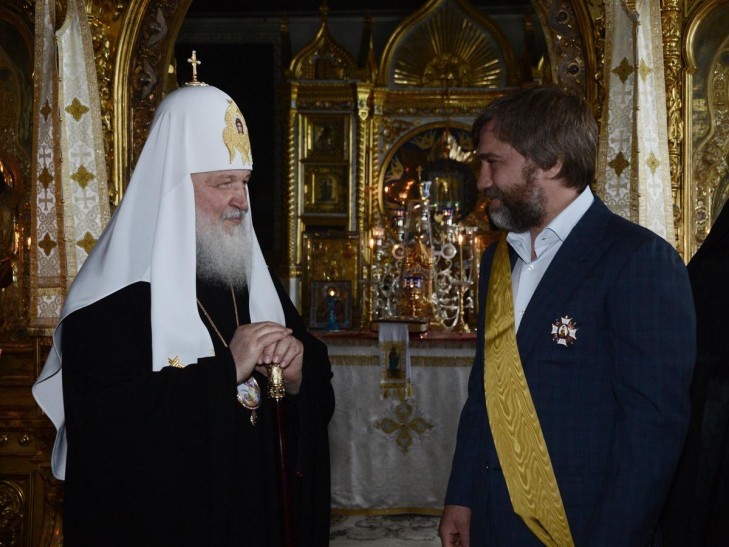 Yanukovych entrusted orthodox oligarch Novynskyi with the settlement of the church issue. It is with Novynskyi that His Eminence Anthony (Pakanych) is associated, whose ecclesiastical career soared in 2012. Then he became Administrator of the UOC (similar to the prime minister) and was granted in addition a number of powers not envisaged by the UOC Statute: supervision of the synodal institutions, representation of the UOC in government, community and church events, responsibility for inter-Christian and inter-religious relations. It was in May 2012 that Metropolitan Volodymyr appointed Anthony the first vicar of the Kyiv Metropolis – the actual church leader of Kyiv region.
Yanukovych entrusted orthodox oligarch Novynskyi with the settlement of the church issue. It is with Novynskyi that His Eminence Anthony (Pakanych) is associated, whose ecclesiastical career soared in 2012. Then he became Administrator of the UOC (similar to the prime minister) and was granted in addition a number of powers not envisaged by the UOC Statute: supervision of the synodal institutions, representation of the UOC in government, community and church events, responsibility for inter-Christian and inter-religious relations. It was in May 2012 that Metropolitan Volodymyr appointed Anthony the first vicar of the Kyiv Metropolis – the actual church leader of Kyiv region.
In early 2013, Anthony was conferred with another award – the title of Metropolitan (if compared with military structures – analogous to the general’s rank). In fact, he concentrated all the power of the church is his hands. This was, so to speak, the first phase of Yanukovych’s plan, which, incidentally, was a success. The second part was the elimination of the nominal head (Volodymyr) and declaring Anthony the official head of Church. It is the implementation of the second part that is the basis of the criminal proceedings regarding Novynskyi. He once even misspoke when asked at a conference to give word to “Primate of the Ukrainian Orthodox Church Metropolitan Anthony.”
It is notable that in case of election of a new church leader a council of bishops convenes to approve the ceremony regulations. So, theoretically, it could happen that the council might decide to elect candidates only among diocesan bishops (in secular language the church leaders of territorial units), while vicar (assistants) bishops are not allowed to vote or stripped of the right to be elected. To prevent such a plot in case of Anthony in September 2013 he was made head of a “church district,” and he was no longer an assistant bishop. It appeared that all the formal and informal hurdles to Antony’s “career improvement” were removed in autumn 2013.
According to the victim in the case – Metropolitan Oleksandr – in 2013 Yanukovych appointed Novynskyi as an “enforcer” for the UOC. Prior to Novynskyi, this church was supervised and funded by oligarch Victor Nusenkis. He is not a public person, he supports the maximum integration with Russia. He was influenced by the famous monk that was quite popular in eastern Ukraine – schema-archimandrite Zosima (Sokur). The latter rejected the very idea of ecclesiastical independence of Ukraine. He called not to recognize it and move under direct subordination to the Moscow Patriarch even if it was to happen officially and in accordance with all church regulations. This is a very important episode in the life of not only Zosima, Nusenkis or Yanukovych (who was also under the influence of the monk), but the entire regional elite of southeastern Ukraine. Commitment to Orthodoxy, ostentatious demonstration of religiousness in conjunction with the generous funding of the construction of new churches are important elements of behavior of a man that wants get on the inside of Donetsk elites, of whicjh journalist Sonya Koshkina once have written in detail.
Overall, the funding of churches by oligarchs is mutually beneficial. For businessmen it is a low cost but serious investment. Churchmen also have nothing to lose, they do not compel people to vote, but only “advise and suggest to make the right choice.”
However, having failed to find common ground with the head of the UOC regarding the future of the church, in 2008, Nusenkis ceased to finance it, until then he had donated approximately USD 125,000 a month. He shifted his focus on Russia and moved to live in Moscow. In 2012, due to disputes with business partners 90% of his assets were frozen by Cypriot authorities. Since then, he almost did not appear in the media space, except for the charges of his involvement in Donetsk companies to finance terrorist groups in Donbas.
Having taken over the affairs in 2012, Novynskyi decided to act quickly and decisively. The then authorities had two objectives: to direct the UOC towards the maximum integration in the ROC, neutralize any tendency for church independence; and use the church to mobilize voters in the next presidential election in 2015 to support Yanukovych.
To achieve this, Primate of the UOC Metropolitan Volodymyr, who was already gravely ill, was to be removed from the office. It was decided to isolate his private secretary Archbishop Oleksandr, who was responsible for treatment. This is the essence of the case initiated by the Prosecutor General of Ukraine against MP Novynskyi. Along with former Interior Minister Zakharchenko and Head of Kyiv Police Koryak, he had illegally deprived Metropolitan Oleksandr of freedom. Yanukovych is the customer of a crime in case. This is the official position of the Prosecutor General.
Having waited until the regime change in the UOC, Novynskyi now feels comfortable there. He is the major sponsor of the Church, revered and respected by bishops. So, a month after the information emerged that Novynskyi’s “Forum” Bank inflicted damage to the state in the amount of more than USD 138 mln., Administrator of the Ukrainian Orthodox Church Metropolitan Anthony said: “Vadim Novynskyi is a trustworthy person in business.”
MP Novynskyi publicly reiterated his opposition to the independence of the Ukrainian Church from Moscow. In 2016, he released a keynote article, in which he proposed Ukrainians to reconsider their geopolitical choice and go back towards Russia, as Ukraine is connected with it through Orthodox faith. He opposed religious pluralism, as he announced it live on Ukrainian television.
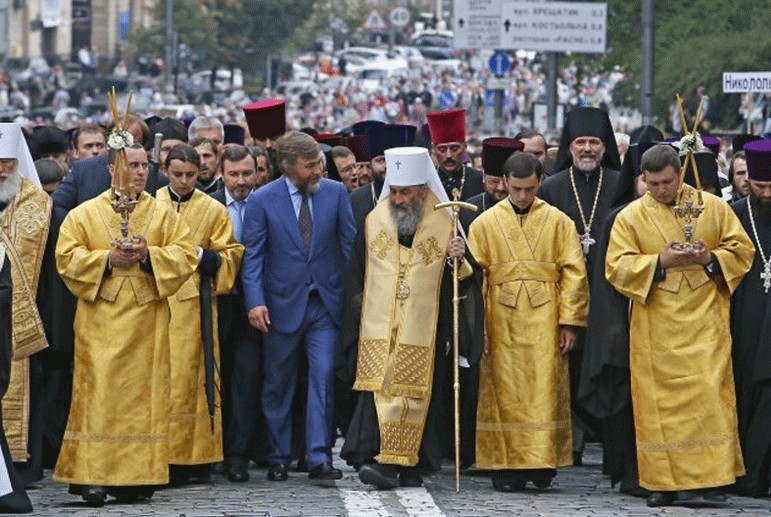
It is noteworthy that surprisingly the public rhetoric of the church leaders Metropolitan Onufriy and Anthony coincides with the position of the “Opposition bloc” party – which is the current body of the rebranded “Party of Regions” of Yanukovych. Similar to these politicians, the Orthodox hierarchs criticize the current government for the alleged systematic religious persecution of the UOC, which does not really exist, at least on the part of the central government. However, these statements form the information field and some are designed to degrade the image and reputation of Ukraine on the international arena. Numerous are the statements made by the UOC hierarchs about the civil war in Ukraine. Definitely, there is a civil aspect, as the former citizens of Ukraine take part in it. But it should not be forgotten who was the catalyst, and who started the war, who captured the administrative buildings, from where came military equipment, soldiers and ammunition. Unfortunately, the clergymen remain shamefully silent. Based on the analysis of public rhetoric and behavior (the famous failure to stand up in Parliament), it appears that the UOC became the continuation of the political Opposition Bloc. The criticism of the Ukrainian side only against a total disregard for the crimes of Russian and pro-Russian parties have become a “business card” not only the officials from Yanukovych’s team, but, unfortunately, of representatives of the UOC. Constant reproduction of the talking points of the Russian Orthodox Church and Russian media regarding the religious situation in Ukraine by senior representatives of the UOC indicates that they are under significant media influence of Russia. Constant complaints to the international court based on distorted presentation and sometimes invention of new facts shows that the Ukrainian Orthodox Church moves in the wake of the Kremlin in its public activities.
It is believed in the media environment that such strange coincidence of mindset is not an occasion, but is the result of the generous support of the UOC by Novynskyi, which has very good relations with the Kremlin and Chystyi Lane. However, for fairness' sake it should be noted that this is only an assumption.
The media recurrently reported that the current head of the Church is financially better off than his predecessor. All these facts seem rather amusing given the fact that before the election of the Church Primate, Metropolitan Onufriy was “promoted” and advertised as “a true monk” and “man of prayer.” Of course, from a formal point of view we can say that he does not have a title to this property, because this is church property, and he only uses it as a violation of religious vows in this regard. However, it turns out to be an interesting kind of communism, I use all what I want, but would not pay. Something tells me that this is not the ideal, adhered to by devotees of I millennium BC, when they created a code of monastic rules.
Novinsky loves to criticize the current government for “interference in the internal affairs of the church.” In particular, this was his response to the letter of Ukrainian Parliament to Patriarch Bartholomew, requesting to cancel the act of XVII century on temporary transfer of the Kyivan Church to the jurisdiction of the Moscow Patriarchate. Both the UOC and ROC immediately referred to the principle of impossibility of intervention in internal and external church affairs by secular power. Surprisingly, none of the defenders of the independence of church life did not oppose when Vladimir Putin took the process of unification of the ROC and ROCOR under his personal control. No one protested when the ROC used the RF Foreign Ministry to make the Ecumenical Patriarch withdraw from settlement of the Ukrainian Church issue, maintaining status-quo.
It is noteworthy that on the background of accusations against the authorities in interference in church affairs, Vadym Novynskyi fairly easily dwells on religious themes, manipulating the concepts of canonicity, autonomy, autocephaly, grace. These questions have no simple answer, because even the Orthodox dogmatic system does not contain a uniform common opinion on these issues, which is mandatory for all. Consequently, imposing one’s own viewpoint regarding these exclusively religious issues is also interference in the internal affairs of the church.
The Orthodox businessman also does not hesitate criticizing the Ecumenical Patriarch. Thus, after the Holy and Great Orthodox Council was completed, Novinsky has voiced his criticism of Patriarch Bartholomew. He presented undocumented figures on the number of believers in various Orthodox churches, to defiantly downplay the Council’s importance. The attitude toward the Council is known to be determined by political tastes. Even the position of the Georgian Church in defending conservative family values is also an, expression of the policy, which is not that outspoken as a demonstrative demarche of the ROC, but still is a certain sign. The author ends his criticism warning Ukrainian authorities and the Ecumenical Patriarch of the possibility to repeat St Bartholomew’s night (hence the lexical match).
In this context it is interesting to note that Vadym Novynskyi’s charitable foundation funded and financed the UOC Synodal Department for Youth, which brought up Ihor Druz (counsel of terrorist Girkin) and Oleksiy Selivanov (the so-called LPR army officer).
Vadym Novynskyi is a smart and cautious person. He consistently defends his own point and has his own vision of the development in Ukraine. Although this vision is often in unison with the position of the Kremlin, he cannot be forbidden to do this, because in Ukraine everyone is entitled to their own point of view, until it begins to threaten the safety of compatriots. Unless (or until?) Vadym Novynskyi’s involvement in threatening the security of the country and its citizens is proven, it is prohibited under law to restrict him from disseminating his views.









